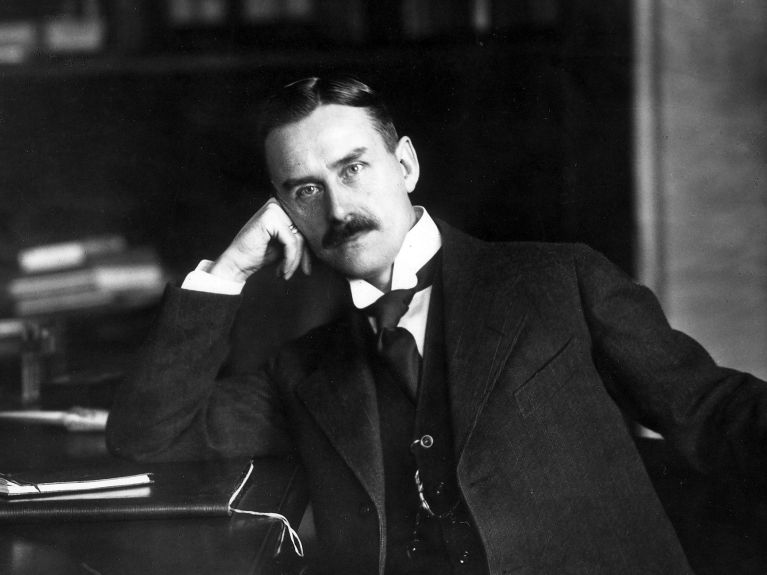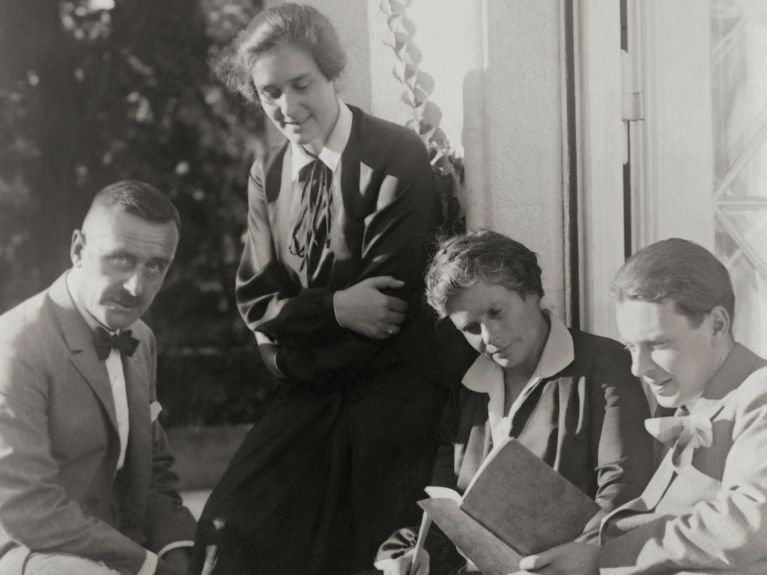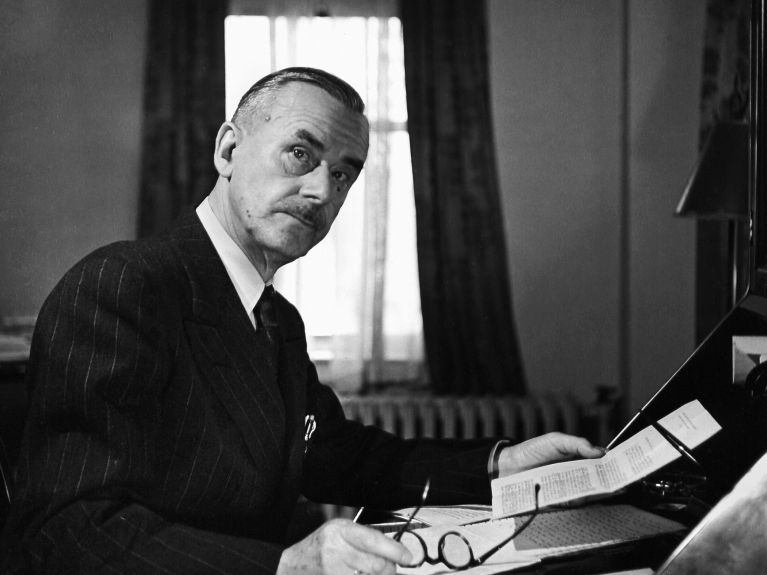Thomas Mann – a literary giant of the century
2025 marks the 150th anniversary of Thomas Mann’s birth and the 70th anniversary of his death – a good moment to revisit the work of the Nobel laureate.

He is considered one of the most important writers of the 20th century. Thomas Mann’s novels, novellas and essays not only left a lasting mark on German literature, they also established him as a global literary figure. Translated into almost 40 languages, his works such as Buddenbrooks, The Magic Mountain, Joseph and His Brothers and Doctor Faustus have sold millions of copies. They combine precise social analysis with philosophical depth, subtle irony and a complex linguistic style.
A privileged background
Born on 6 June 1875 in Lübeck, Thomas Mann grew up in a wealthy merchant family. After the death of his father in 1891 and the liquidation of the company, the family moved to Munich, where Mann immersed himself in the literary scene. His extraordinary talent became apparent early on, such as in the novella Little Herr Friedemann (1898). In 1905 he married Katia Pringsheim, who was from a wealthy Jewish family. With their six children – including Klaus and Erika Mann, who became successful authors in their own right – the Mann family developed over the decades into a kind of intellectual dynasty . It was not without its share of personal drama, however: Klaus Mann struggled with depression and committed suicide in 1949, the Manns’ youngest son, the composer Michael Mann, also took his own life in 1977, and several other family members likewise suffered from mental health problems.

Fame and resistance
Thomas Mann reached the height of his fame in the 1920s and was awarded the Nobel Prize for Literature in 1929, primarily for his early novel Buddenbrooks (see below). Although he considered himself politically conservative for a long time, Thomas Mann became an advocate of democracy during the period of the Weimar Republic. When the National Socialists came to power in 1933, he was forced to leave Germany. Initially moving to Switzerland, he later moved to the USA, where he obtained American citizenship and actively campaigned against the Nazi regime. Under the title “German listeners!”, his radio speeches were aimed at the German population, openly calling on them to put up resistance to Hitler. Of his role in exile he said: “Where I am is where Germany is”. After the war he returned to Europe and lived mainly in Switzerland, where he died on 12 August 1955.

Examples of masterpieces by Thomas Mann:
This semi-autobiographical novel traces the rise and fall of a merchant family in Lübeck. The protagonists struggle with the constraints of the bourgeoisie and their personal dreams. Mann paints a portrait of the era that draws on detailed social observations and subtle humour. Describing the subtle changes over the generations, he wrote: “What is life other than a series of small matters?” Lübeck residents who recognised themselves in the not always flattering characters in the book were not overly enthusiastic.
Set in a Swiss sanatorium, this novel explores the themes of illness and death, as well as delving into the intellectual currents of the time. Young engineer Hans Castorp initially only plans to remain at the sanatorium for a short period of time with his sick cousin, but his stay ends up lasting for years. In dialogue with characters such as the fun-loving Settembrini and the nihilistic Naphta, Castorp searches for meaning in a fragmented world.
In this four-part work, Thomas Mann takes up the biblical story of Joseph and reinterprets it. The novel sheds light on Joseph’s rise from being a spurned child to becoming an influential advisor to the Pharaoh. Mann imbues the ancient material with psychological depth, transforming it into an exploration of power, divinity, and humanity.
This late work links the life of the composer Adrian Leverkühn with German history. Through a pact with the devil, Leverkühn gains artistic genius but loses his humanity. The novel is an allegory of Germany’s cultural and moral decline in the 20th century.


